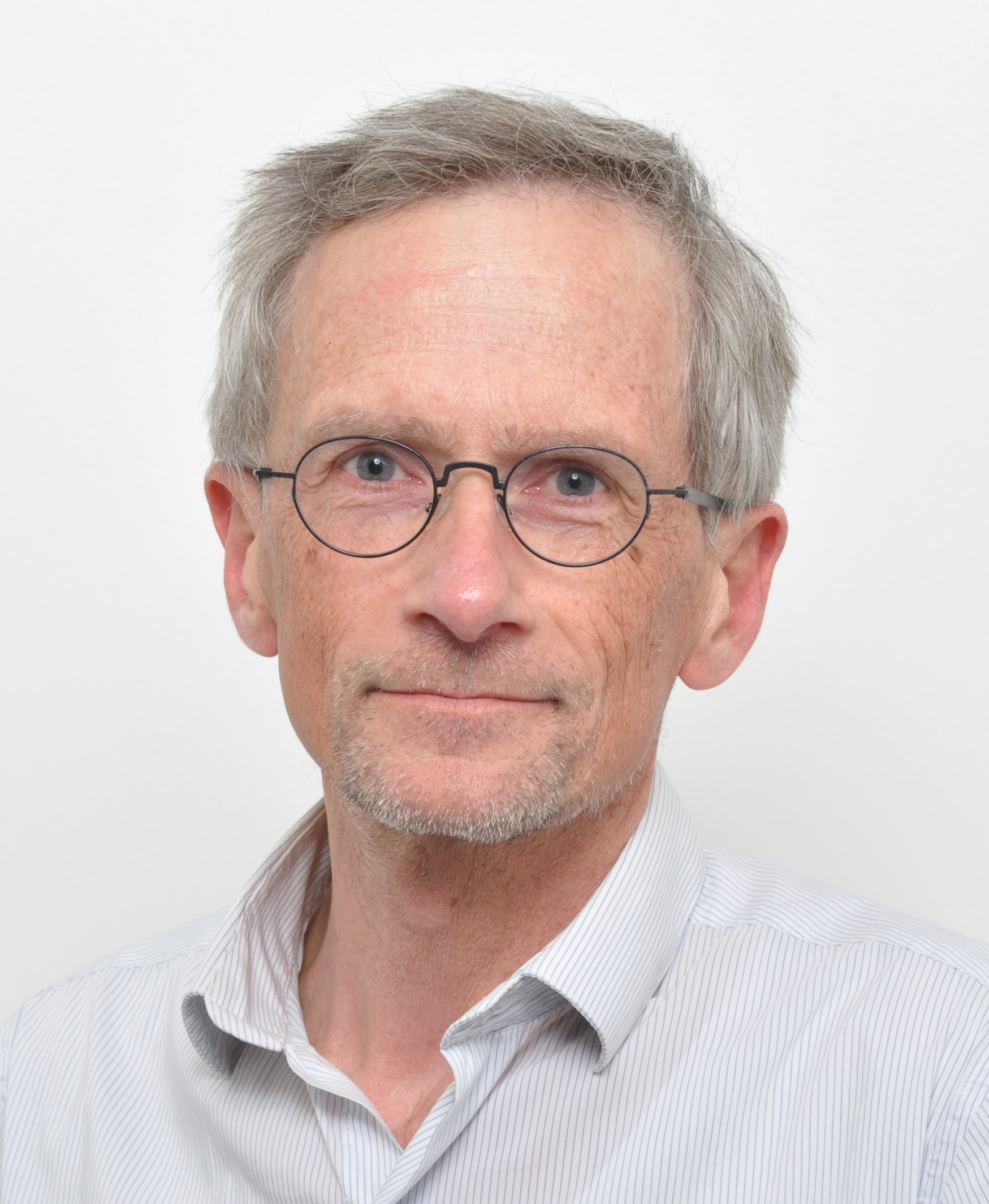MARTIN Christophe
My research is focused on particulate media, with a particular interest for powders with engineering applications. Since 2001, I am the principal investigator in the development of a discrete element code, dp3D, dedicated to the processing of powders (compaction and sintering) and to the investigation of the fracture behaviour of brittle materials. The applications are mainly on materials for energy applications (thermal insulation, nuclear pellets, ceramic electrodes, thermoelectric materials, capacitors), but may also relate to other fields like the densification of snow or the mastication of cellular food. The numerical simulations are coupled and compared as much as possible with experiments such as x-ray tomography.
Examples of application of the dp3D code are available here:
![[title-image]1383921718847[/title-image]](https://simap.grenoble-inp.fr/medias/photo/ovito-powder-and-grains-small-transparent-zoom_1453391738765-gif?ID_FICHE=28887)
Selected Publications:
- Paredes-goyes, B., Jauffres, D. & Martin, C. L. A Level Set Discrete Element Model for sintering with an optimization-based contact detection. J. Theor. Comput. Appl. Mech. 0–18 (2025) doi:10.46298/jtcam.13721.
- Paredes-Goyes, B., Venkatesh, A. M., Jauffres, D. & Martin, C. L. Two-step sintering of alumina nano-powders: A discrete element study. J. Eur. Ceram. Soc. 43, 501–509 (2022).
- Paredes-Goyes, B., Jauffres, D., Missiaen, J.-M. & Martin, C. L. Grain growth in sintering: a discrete element model on large packings. Acta Mater. 218, 117182 (2021).
- Hamelin, G., Jauffrès, D., Martin, C. L., Meille, S. & Foray, G. Mechanical properties of milimetric silica aerogel particles produced through evaporative drying : A coupled experimental and discrete element approach. J. Non. Cryst. Solids 560, 120727 (2021).
- K. Radi, D. Jauffrès, S. Deville, & C. L. Martin, Elasticity and fracture of brick and mortar materials using discrete element simulations. Journal of the Mechanics and Physics of Solids 126, 101–116 (2019).
- A. Burr, P. Lhuissier, C. L. Martin & Philip, A. In situ X-ray tomography densification of firn : The role of mechanics and diffusion processes. Acta Materialia 167, 210–220 (2019).
- E. Guesnet, B. Bénane, D. Jauffrès C. L. Martin, G.P. Baeza, G. Foray et al. Why fumed and precipitated silica have different mechanical behavior : Contribution of discrete element simulations. Journal of Non-Crystalline Solids. 2019
- W. Gonçalves, J. Morthomas, P. Chantrenne, M. Perez, G. Foray, C.L. Martin, Elasticity and strength of silica aerogels: A molecular dynamics study on large volumes, Acta Mater. 145 165–174 (2018).
- D. Jauffrès, C.L. Martin, R.K. Bordia, Design of strain tolerant porous microstructures – A case for controlled imperfection, Acta Mater. 148 193–201 (2018).
- J. Villanova, R. Daudin, P. Lhuissier, D. Jauffrès, S. Lou, C.L. Martin, S. Labouré, R. Tucoulou, G. Martínez-Criado, L. Salvo, Fast in situ 3D nanoimaging: A new tool for dynamic characterization in materials science, Mater. Today. 20 354–359 (2017).
- A. Burr, W. Noël, P. Trecourt, M. Bourcier, F. Gillet-Chaulet, A. Philip, C.L. Martin, The anisotropic contact response of viscoplastic monocrystalline ice particles, Acta Mater. 132 576–585 (2017).
- D. Roussel, A. Lichtner, D. Jauffrès, J. Villanova, R.K. Bordia, and C.L. Martin, Strength of hierarchically porous ceramics : discrete simulations on X-ray nanotomography images, Scr. Mater., 113 250–253 (2016).
- R. Kumar, S. Rommel, D. Jauffrès, P. Lhuissier, and C.L. Martin, Effect of packing characteristics on the discrete element simulation of elasticity and buckling, Int. J. Mech. Sci., 110 14–21 (2016).
- A. Lichtner, D. Roussel, D. Jauffrès, C.L. Martin, and R.K. Bordia, Effect of Macro-Pore Anisotropy on the Mechanical Properties of Porous Ceramics, J. Am. Ceram. Soc., 1–9 (2015).
- L. Hedjazi, C.L. Martin, S. Guessasma, G. Della Valle, and R. Dendievel, Experimental investigation and discrete simulation of fragmentation in expanded breakfast cereals, Food Res. Int., 55 28–36 (2014).
- Z. Yan, O. Guillon, C.L. Martin, S. Wang, C.-S. Lee, and D. Bouvard, In-situ synchrotron x-ray transmission microscopy of the sintering of multilayers, Appl. Phys. Lett., 102 223107 (2013).
- Z. Yan, C.L. Martin, O. Guillon, and D. Bouvard, Effect of size and homogeneity of rigid inclusions on the sintering of composites, Scr. Mater., 69 327–330 (2013).
- D. Jauffrès, C.L. Martin, A. Lichtner, and R.K. Bordia, Simulation of the toughness of partially sintered ceramics with realistic microstructures, Acta Mater., 60 4685–4694 (2012).
- X. Liu, C.L. Martin, D. Bouvard, S. Di Iorio, J. Laurencin, and G. Delette, Strength of Highly Porous Ceramic Electrodes, J. Am. Ceram. Soc., 94 3500–3508 (2011).
- P. Pizette, C.L. Martin, G. Delette, P. Sornay, and F. Sans, Compaction of aggregated ceramic powders: From contact laws to fracture and yield surfaces, Powder Technol., 198 240–250 (2010).
- C.L. Martin and R.K. Bordia, The effect of a substrate on the sintering of constrained films, Acta Mater., 57 549–558 (2009).
- C.L. Martin and R.K. Bordia, Influence of adhesion and friction on the geometry of packings of spherical particles, Phys. Rev. E, 77 31307 (2008).
- C.L. Martin, G. Delette, and D. Bouvard, Compaction of ceramic aggregated powders, J. Am. Ceram. Soc., 89 3379–3387 (2006).
- C.L. Martin, L.C.R. Schneider, L. Olmos, and D. Bouvard, Discrete element modeling of metallic powder sintering, Scr. Mater., 55 425–428 (2006).
- L.C.R. Schneider, C.L. Martin, Y. Bultel, D. Bouvard, and E.Siebert, Discrete modelling of the electrochemical performance of SOFC electrodes, Electrochim. Acta, 52 314–324 (2006).
- C.L. Martin, Elasticity, fracture and yielding of cold compacted metal powders, J. Mech. Phys. Solids, 52 1691–1717 (2004).
- C.L. Martin, D. Bouvard, and S. Shima, Study of particle rearrangement during powder compaction by the Discrete Element Method, J. Mech. Phys. Solids, 51 667–693 (2003).




![[title-image]1383921719060[/title-image]](https://simap.grenoble-inp.fr/medias/photo/rg_1453736599714-png?ID_FICHE=28887)